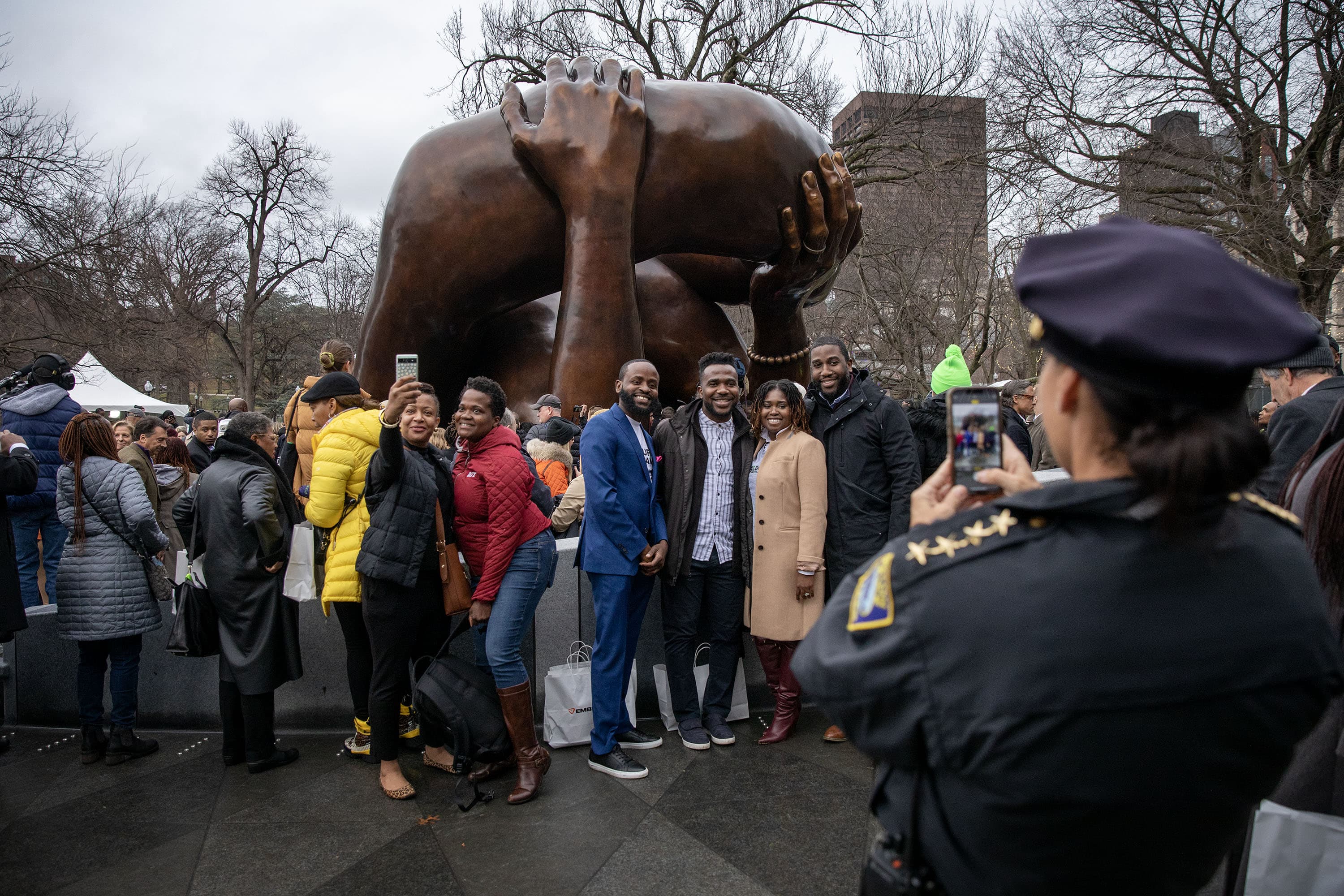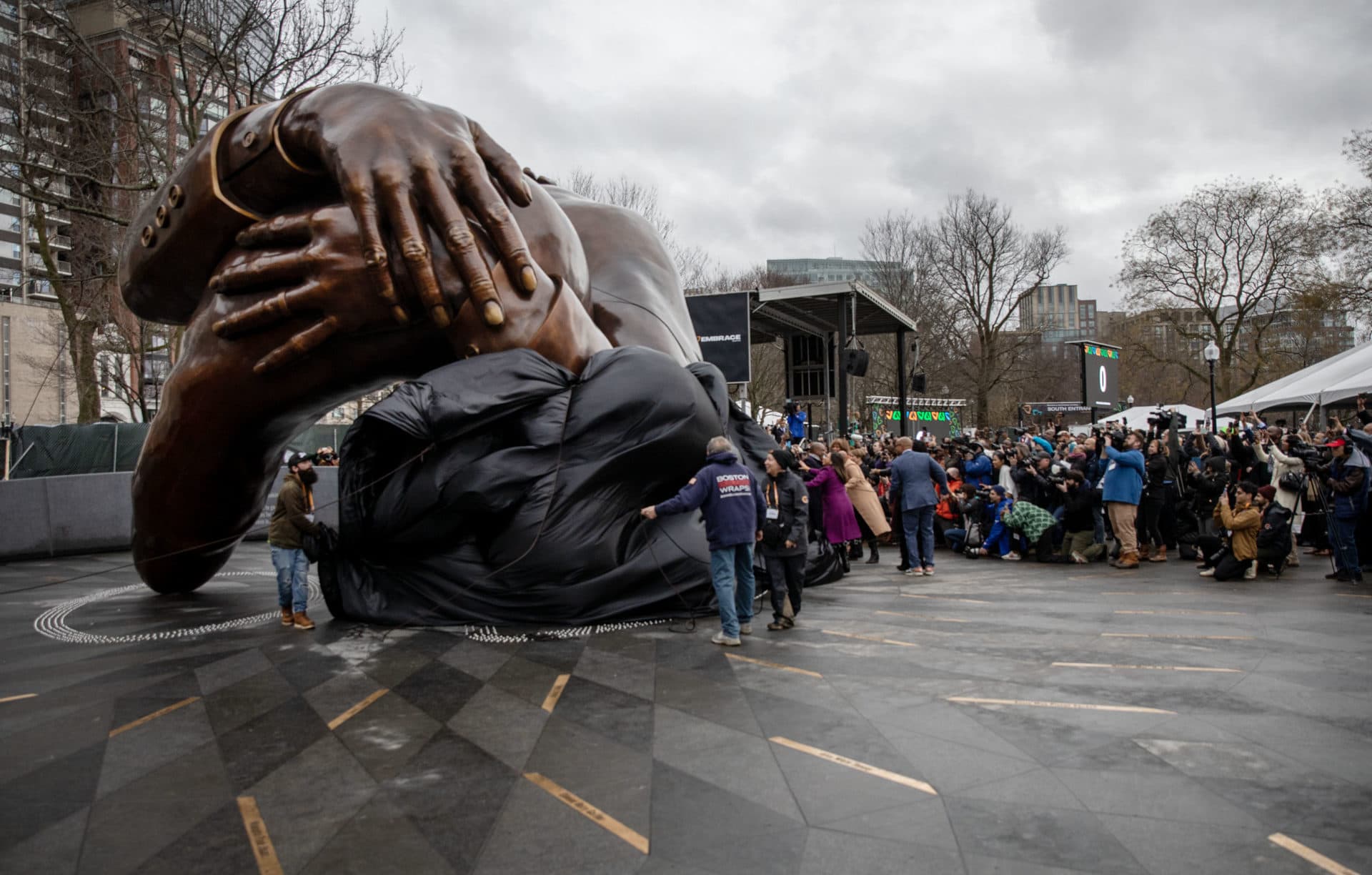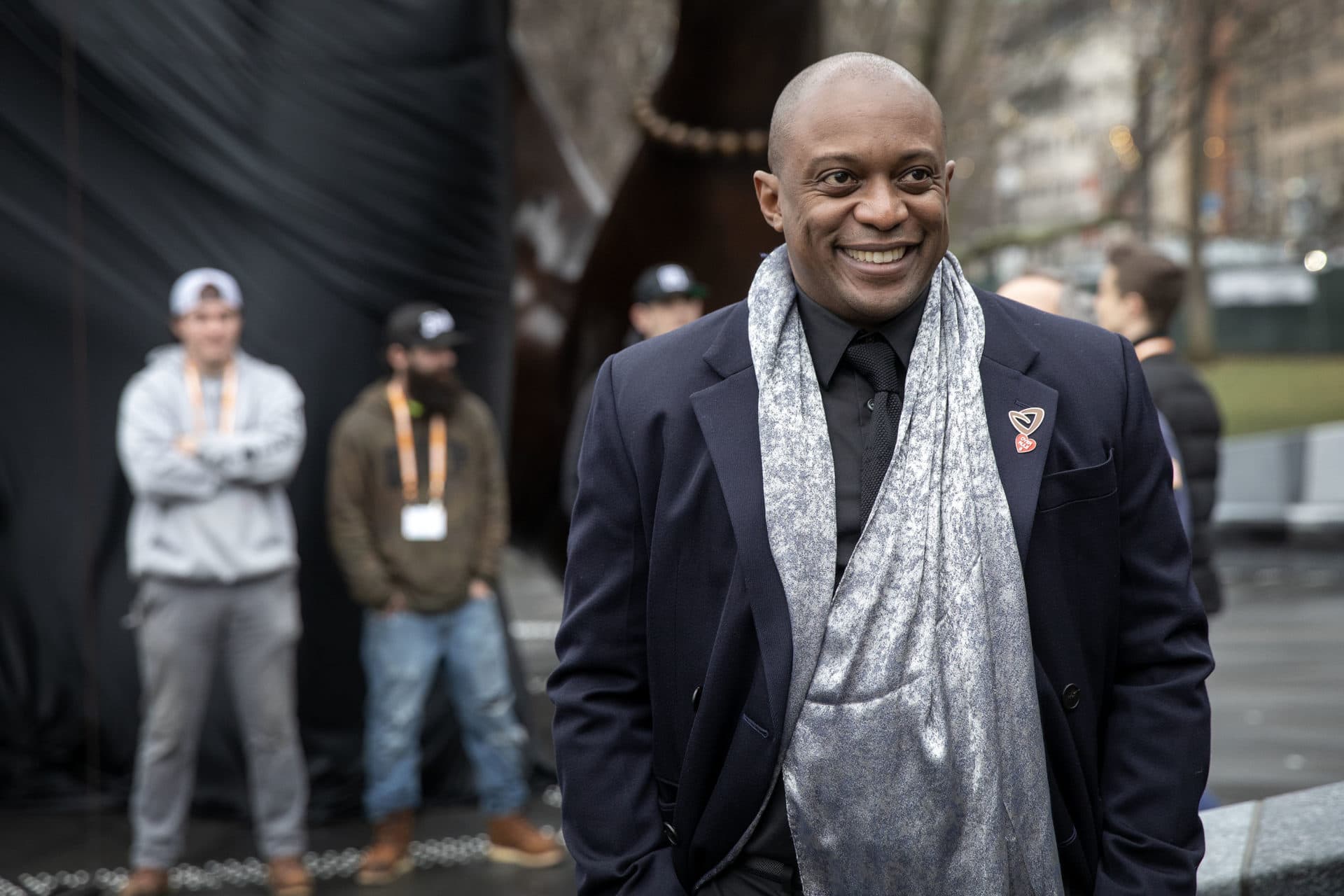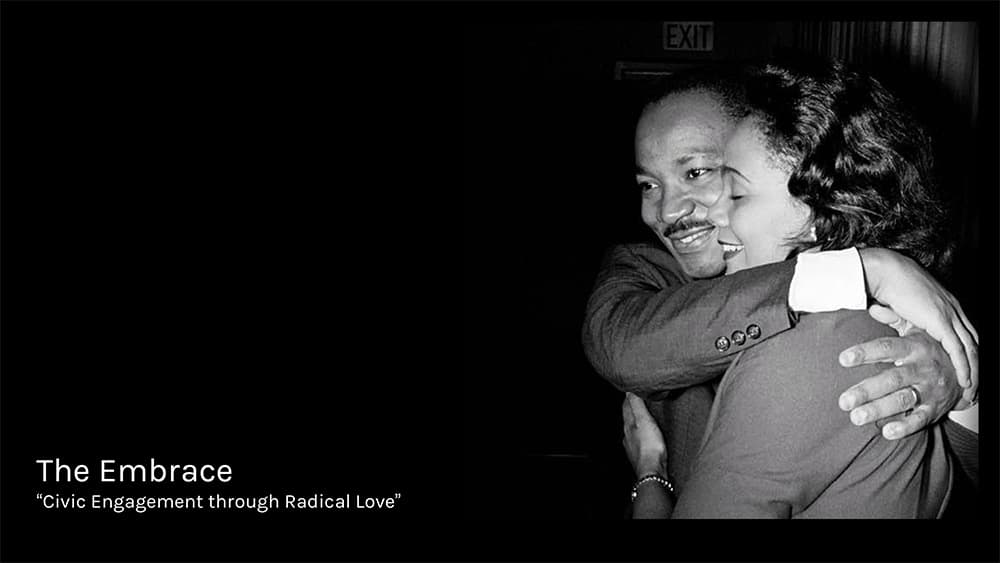Advertisement
A monument to the Kings, 'The Embrace' is unveiled on Boston Common

Maybe this too is part of the dream. To see Dr. Martin Luther King Jr.’s only granddaughter, Yolanda Renee King, inspire crowds on Boston Common as he once did and call for love above all else. To see families come and bear witness to the unveiling of Boston’s newest monument: the “Embrace.”
The wind blew parts of King’s speech off the podium and she said her grandparents must be present and excited.
“I've studied their writings. I have listened to tapes of them speaking and I have watched videos that showed them in action,” King said. “I feel that they are somehow with me, that our spirits are joined in the quest for a just, loving and peaceful world.”
The 14-year-old looked around. People had just started dabbing at their eyes with tissues.
“I am very proud to be their granddaughter, but I am also challenged by their inspiring legacies of vision and courage and hope and healing,” King said. “But I know that I am not alone. There is a sense in which we are all children and grandchildren of Martin and Coretta Scott King. We are all challenged to carry forward their unfinished work.”

This message carried through the day at the official unveiling of artist Hank Willis Thomas’ 20-foot-tall monument which captures the King’s love story in bronze.
People began to gather early around mid-morning, forming lines to enter the event that started at 1 p.m. Others stood outside near the Parkman Bandstand to watch one of many screens set-up nearby. A choir made up of six congregations from across the city performed. Leaders from the commonwealth lined up to pay their respects.
Imari Paris Jeffries is the executive director of Embrace Boston, the organization that spearheaded the installation of the monument. He hopes people take note of The 1965 Freedom Plaza surrounding the “Embrace,” inspired by the African American quilting tradition. A blanket, passed on from generation to generation that keeps you warm and tells a story, piece by piece. This, too, is his organization. Diverse and devoted to one mission.
Advertisement
“This is one of the only monuments where four of the five founders are people of color,” Jeffries said. “Two out of the five are women, where the lead architect of the plaza is a Black man. The artist is a Black man and the organization is predominantly Black and Latinx led by a Black person. In every way, this is a celebration of our culture. This is a celebration of the transformation and our survival.”
“I've studied their writings. I have listened to tapes of them speaking and I have watched videos that showed them in action. I feel that they are somehow with me, that our spirits are joined in the quest for a just, loving and peaceful world.”
Yolanda Renee King
Despite the gray skies, the sun managed to peek through the clouds briefly. Willis arrived early. By his side were his parents, his father Hank Thomas Sr. and his mother Deborah Willis, a prominent educator, historian and photographer. The sculpture is inspired by a photo of the Kings hugged after the announcement that he had won the Nobel Peace Prize.
“Hank has been able to transform the idea of love into a beautiful sculpture of family, the aspect of embrace and how do you read a photograph to make it three dimensional, to make it experiential for people,” said Deborah Willis. “This is really mind blowing and a tremendous sense of pride that I feel about it.”
She remembers listening and watching her son move forward with this project. Also a part of this process was her mother, who passed last summer at the age of 100.
“The fact that the sun is coming through, you know, we're feeling her spirit,” she said.
Just before the speakers began, her son said the same. He knew his grandmother was by his side that day to see his work change the landscape of America’s oldest public park.

“It's always been important for me to both acknowledge the struggles and the pain and the horrors that people of African descent have suffered on this continent,” he said. “It's equally important for me to celebrate their fortitude, their grace, their beauty, their humanity in the best way. I hope that people will recognize the power that exists to overcome any obstacle and still be humane that we've seen from descendants of African slaves and Indigenous people who have very little reason to not carry hate, but still do carry so much love and dignity.”
This was a day of Black joy, of honoring the ancestors, of celebrating family and remembering the lessons of those who came before us. This is what Jeffries sees every time he looks at the interlocking arms of this monument: Family. Both of his parents passed away last year within a few months of each other. He couldn’t stop thinking about them as he prepared for this milestone moment, to let the joy of people’s first reactions to the memorial wash over him.
“I didn't realize how much my mother and father loved each other until they passed away,” he said. “And to build a memorial that's dedicated to love is probably what I'm holding back the most. Being overwhelmed and showered with love and seeing people love each other and wishing my folks could be here to be loved and be loved by a community.”

Jeffries is now preparing for the next phase of this work.
“I want to continue listening with my eyes and my ears to the reactions of folks, to see all the ways that their dreams, all the dreams that they told me when we talked about building this embrace, what it meant to them,” he said. “Because there are a thousand dreams that this memorial meant to people.”
Deepa Soni took her daughters out of school to attend the unveiling.
“For me to be able to expose my children to something like this, it's part of history,” she said. “Especially having two girls, two brown girls, and have in real time something that represents everything that I strive to teach them. I couldn't ask for more.”
This segment aired on January 13, 2023.
